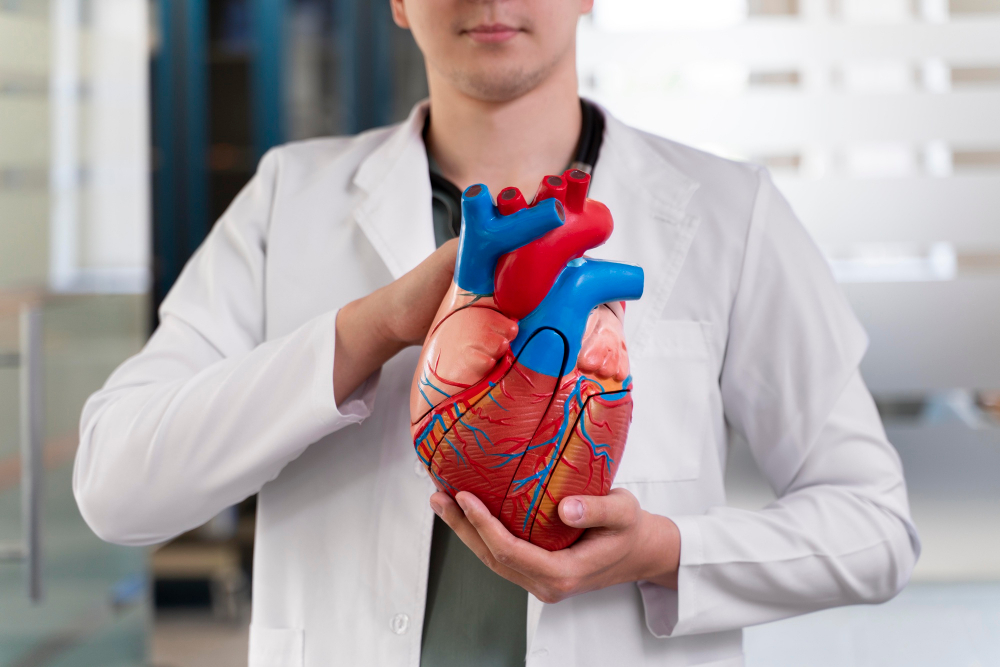New Medical Centre Pondicherry

New Medical Centre Pondicherry in a Nutshell
Nestled in the heart of Pondicherry, New Medical Centre is a premier multi-specialty medical facility dedicated to providing comprehensive diagnostics and top-tier healthcare services. At New Medical Centre, our dedication to excellence drives us to deliver the utmost care for each patient. We delve into their concerns, relentlessly seeking answers until we uncover solutions. Our approach is centered on tailoring treatments to each individual, allowing us to grasp the nuances of various disease patterns. Fueled by a culture of teamwork and unwavering quality, we ensure that every practice embodies our commitment to providing the finest care and service possible.
What our Customers Say About Us
Products / Services
Chest Medicine
Dermatology
Emergency and Critical Care
ENT
Gastroenterology
General Medicine
General Surgery
Gynaecology
Nephrology
Orthopedics
Paediatrics
Psychiatry
Rheumatology
Urology
Read our Recent Articles
What It Takes to Control Infection in Every Corner of a Hospital
 When you walk into a hospital, it’s easy to feel reassured by the bright lights, spotless floors, and clean scent of antiseptics. But behind the scenes, hospitals are constantly battling an invisible enemy: infection.
When you walk into a hospital, it’s easy to feel reassured by the bright lights, spotless floors, and clean scent of antiseptics. But behind the scenes, hospitals are constantly battling an invisible enemy: infection.
Healthcare-associated infections (HAIs) remain a serious threat in medical settings, despite massive advancements in hygiene, technology, and training.
Going Home After Cardiac Surgery – Essential Preparations
 Finding that you have a cardiac condition that requires surgery can be frightening. What you need to keep in mind is that while cardiac surgery is a major procedure, the surgical advances made in recent years mean that your chances of recovering to lead a normal active life are now better than ever before.
Finding that you have a cardiac condition that requires surgery can be frightening. What you need to keep in mind is that while cardiac surgery is a major procedure, the surgical advances made in recent years mean that your chances of recovering to lead a normal active life are now better than ever before.
Frequently Asked Questions about our Products / Services
What is the best treatment for kidney stone available in India?
I developed kidney stones a couple of years back. I lived in Pondy at that time. I went to NMC Pondy and consulted with the urologist. He told me that the stones had become quite big and it would be difficult to remove them without surgery. I was quite scared but they did such a good job and the aftercare was excellent that I needn’t have worried so much. You can check out their urology department at. Call +91 89398 89399 for an appointment.
What is best hospital for cancer in India for Immediate treatment?
When you are looking for a hospital for cancer treatment, it is important to find a hospital that offers different kinds of treatments for cancer. At NMC Pondy, a multi-specialty hospital with some of the best doctors, they have state of the art technology. Their oncology department is excellent and they offer some of the most advanced cancer treatment in India. They devise unique treatment programs for each patient.
How serious can a urine infection get?
A good medical check-up package should include blood levels, x-rays, scans, an ECG, etc. It should be a way to assess all the different organs in the body and see if they are functioning properly. It should help doctors detect any problems before it arises. I do my complete medical check-up at NMC Pondy every year. If you are looking for a place to do a full medical check-up, then https://www.nmcpondy.com/health-packages.html is suggested. you can find out more about their health packages. Call +91 89398 89399 for an appointment.
What is the best way to get rid of back pain?
Lower back pain is reason enough to visit a doctor. It may be due to an injury, muscle sprain, poor body mechanics, or sudden movements. The pain may start as a dull, annoying one, to being unrelenting and severe, thus hampering normal movements and mobility. It could last for as little as one to two days or as long as two or more weeks and vary in intensity.
How can I reduce my risk of a heart attack?
There are several ways through which you can risk the risk of a heart attack. You must have an eye on your blood pressure level, and if it rises, you should monitor it regularly and take the necessary treatment. Eating right is the way to health; hence limit the intake of food higher in sodium and added sugars. Besides, do exercises regularly and maintain a healthy weight.
Why do people burp?
We are constantly swallowing air when we eat or drink something. This causes the stomach to get distended or expands it. The release of the swallowed air up the esophagus and out the mouth causes burping.
Burping triggers
Sometimes, certain factors can cause excessive and constant burping. These include:-
- Bad diet
- Eating or drinking too quickly
- Peptic ulcers and gastritis
- Smoking
- Anxiety
- Talking while eating
- Bad dental work
- Medication
What are the leading factors to antibiotic resistance?
Antibodies have been prevalent since the 1940s. However, studies on the adverse effects of antibiotics have been initiated only in the 21st century. This implies that antibiotics were assumed to be safe, and hence, widely used to treat not only humans but also livestock.
These days the misuse of antibiotics, in the form of overuse, is of real concern due to its great impact on humans. Using antibiotics indiscriminately leads to drug resistance, a situation in which the drug is no longer potent enough to treat pathogenic bacteria. In the event of drug resistance, simple infections become untreatable, which can lead to a life-threatening situation.
Also, the overuse of antibiotics used in treating livestock has adversely affected the ability of these drugs in treating humans. Cattle are fed with fodder containing antibiotics leading to the growth of drug-resistant bacteria in them. When humans eat or handle meat from these livestock, they become infected with “superbugs, “as these resistant bacteria are called. Presently, superbugs are capable of causing pneumonia, skin infections, or urinary tract infections. This scenario is likely to worsen, should similar conditions prevail.
What are the symptoms of post-COVID-19 syndrome?
Some people with COVID-19 get better within weeks of the disease. However, some people experience post-COVID-19 complications too. Common symptoms that are found in these people include fatigue, difficulty breathing, cough, chest pain, loss of smell or taste, etc. They may experience either one or a combination of these symptoms. When the patients undergo this disease, there is also an impact on the patient’s mental health condition as well as the family’s mental health condition.
The heartening thing is that there are ways to manage the post-COVID conditions, Several patients get better with the passage of time. It may sound obvious, but the best way to prevent the long-term problems of COVID-19 is to prevent COVID-19 itself. Don’t forget to wear a mask, maintain proper social distancing, get the COVID-19 vaccine, don’t travel in crowds, and wash your hands with soap and water often.
Which is a good place in Pondy for a master health check up?
New Medical Centre (NMC) in Pondicherry has several comprehensive health packages designed to meet all medical needs. These include a male and a female master health checkup in Pondicherry. NMC is the leading healthcare facility in the city and is known for its state-of-the-art medical and diagnostic equipment and the highly skilled and qualified doctors that it has. The hospital website gives more information on the master health checkup and other packages.
What are the symptoms of hormonal disorder?
Hormonal imbalances can occur during your teenage years, during pregnancy, menopause, etc. It can even occur due to medical conditions, stress, etc. Some of the common symptoms include:
Putting on weight
Fatigue
Weakness
Pain in extremities
Swelling in joints
Weight loss
Stiffness in body
A sudden manifestation of illnesses and conditions.
What surgical treatments are available for urinary incontinence?
Urinary incontinence is a condition when physical activity can result in the leakage of urine. Although both men and women may suffer from this condition, it is more common among women. Surgery for repair of the weak tissue or added support with mesh repair can be considered to help with urinary incontinence. The surgeon will decide on what surgical procedure is right for a patient. Laparoscopic and transvaginal surgery are popular options because it produces less scarring and pain and has a shorter recovery time as compared to traditional surgery. Call NMC Pondy at +91 89398 89399 for an appointment with a Gynaecologist in Pondicherry.
How long do platelet rich plasma injections last?
The Dermatology Department at NMC Pondicherry has experts in the field of using Platelet Rich Plasma (PRP) for hair regrowth and facial rejuvenation. Both are highly effective, pain-free, and safe. The results from PRP for hair regrowth are long-lasting, but in some cases, maintenance treatments (injections) may be required every few months. In the case of PRP for facial rejuvenation, the results, often last up to one or two years. Contact us for more detailed information and to have all your question about PRP treatments answered.
How do you treat pimples after treatment?
This is one of the most common questions that the aesthetic medicine specialists in the cosmetology department at New Medical Centre in Pondicherry are asked. We answer that skincare is an ongoing process and must not be forgotten at any age. Getting pimple treatment does not mean that a person can stop caring for his or her skin. When a patient comes to us, we do a detailed examination, discuss treatment options with the patient and once a decision has been made and treatment provided, give him or her all the information that is needed for post-treatment care, whether it is for pimples or anything else.
What are the signs and symptoms of neurological disorder?
There are many different signs and symptoms of neurological disorders, which can vary depending on the specific condition. However, some common ones include:
- Changes in movement, such as tremors or paralysis
- Changes in sensory perception, such as loss of touch or vision
- Changes in cognitive function, such as memory loss or difficulty concentrating
- Changes in mood or behavior, such as depression or anxiety
- Speech changes, such as slurred speech or difficulty understanding others
If you are experiencing any of these symptoms, it is important to see a doctor right away. A neurologist will be able to properly assess your condition and recommend the best course of treatment.
What's the difference between sleep apnea and obstructive sleep apnea?
Sleep apnea and obstructive sleep apnea are two different conditions. Sleep apnea is a condition in which breathing repeatedly stops and starts during sleep. Obstructive sleep apnea is a more serious condition that occurs when the airway becomes blocked, preventing oxygen from reaching the lungs. Although both conditions can cause similar symptoms, such as loud snoring and pauses in breathing, only obstructive sleep apnea requires treatment. If you think you may have either condition, it is important to see a doctor for diagnosis and treatment.
What is the best treatment for cancer?
There is no one best treatment for cancer. Treatment depends on the type of cancer, its stage (how far it has spread), and the person's overall health. Treatment may include surgery, radiation therapy, chemotherapy, targeted therapy, or other treatments.
What are the main causes of stroke?
A stroke is a medical condition that occurs when the blood supply to the brain is interrupted. The main causes of stroke are:
1. Ischemic Stroke: caused by a blockage in a blood vessel supplying blood to the brain, usually due to a blood clot.
2. Hemorrhagic Stroke: caused by bleeding in the brain, usually due to a ruptured blood vessel.
3. Transient Ischemic Attack (TIA): Also known as a "mini-stroke," caused by a temporary blockage in a blood vessel supplying blood to the brain.
4. High blood pressure: High blood pressure is a major risk factor for stroke as it can cause damage to the blood vessels over time.
5. Atrial fibrillation: An irregular heart rhythm that can cause blood clots to form and travel to the brain, causing a stroke.
6. Smoking: Smoking increases the risk of stroke by damaging blood vessels and causing blood clots.
7. High cholesterol: High levels of cholesterol in the blood can lead to a buildup of plaque in the blood vessels, which increases the risk of stroke.
8. Obesity: Being overweight increases the risk of stroke by increasing the risk of high blood pressure, diabetes, and heart disease.
It's important to keep in mind that stroke can be caused by a combination of these factors and it's important to have a healthy lifestyle to prevent the risk of stroke.
What level of creatinine indicates kidney failure?
The level of creatinine that indicates kidney failure can vary depending on a variety of factors, including age, gender, and overall health. Generally, a creatinine level of 1.3 mg/dL or higher in women and 1.4 mg/dL or higher in men, sustained over a period of time, can indicate kidney failure. However, it's important to note that creatinine levels alone are not a definitive measure of kidney function, and other factors such as glomerular filtration rate (GFR) and urine output should also be taken into consideration when diagnosing and treating kidney disease. Ultimately, a medical professional should be consulted to properly interpret creatinine levels and assess kidney function.
What is coronary artery disease?
Coronary artery disease (CAD) is a condition that occurs when there is a buildup of plaque in the arteries that supply blood to the heart muscle. This plaque buildup can cause the arteries to become narrow and stiff, reducing blood flow to the heart. Over time, this reduced blood flow can lead to chest pain (angina), shortness of breath, heart attack, and other complications.
The main cause of CAD is atherosclerosis, which is a gradual buildup of cholesterol, fat, and other substances in the walls of the arteries. Other risk factors for CAD include high blood pressure, smoking, diabetes, obesity, and a family history of heart disease.
Treatment for CAD typically includes lifestyle changes, such as adopting a healthy diet and increasing physical activity, as well as medications to manage risk factors such as high blood pressure and high cholesterol. In some cases, procedures such as angioplasty or bypass surgery may be necessary to improve blood flow to the heart.
What are the symptoms of cervical cancer?
Cervical cancer is a type of cancer that starts in the cervix, which is the lower part of the uterus that connects to the vagina. It often develops slowly and may not cause noticeable symptoms in its early stages. However, as cancer progresses, some common symptoms of cervical cancer may include:
1. Abnormal vaginal bleeding: This may include bleeding between periods, after sexual intercourse, or after menopause.
2. Pain during sexual intercourse: Some women may experience pain or discomfort during sexual intercourse.
3. Pelvic pain: Pain or discomfort in the pelvis, which may be persistent or sporadic.
4. Vaginal discharge: Unusual vaginal discharge that may be watery, bloody, or have a foul odor.
5. Changes in the menstrual cycle: Changes in menstrual flow, such as heavier or longer periods than usual.
6. Fatigue: Feeling excessively tired or weak without an obvious cause.
It's important to note that these symptoms can also be caused by other conditions, and having one or more of these symptoms does not necessarily mean you have cervical cancer. If you are experiencing any concerning symptoms, it's essential to consult a qualified healthcare professional for proper evaluation and diagnosis. Regular screenings, such as Pap tests and HPV tests, can also help detect cervical cancer early or even prevent it.
What are the common risk factors for heart disease?
Several common risk factors contribute to the development of heart disease. These include high blood pressure, high cholesterol levels, smoking, diabetes, obesity, a sedentary lifestyle, and a family history of heart disease. High blood pressure forces the heart to work harder, increasing the risk of heart disease. Elevated cholesterol levels can lead to the formation of plaque in the arteries, restricting blood flow. Smoking damages blood vessels and accelerates the development of atherosclerosis. Diabetes raises the risk of heart disease due to its impact on blood sugar control and blood vessel health. Obesity puts extra strain on the heart and contributes to other risk factors like high blood pressure and diabetes. A lack of physical activity and an unhealthy diet contribute to weight gain and poor heart health. Finally, a family history of heart disease suggests a genetic predisposition to the condition. Managing these risk factors through lifestyle changes and medical interventions is crucial for preventing or managing heart disease.
What causes cervical cancer?
Cervical cancer is primarily caused by persistent infection with certain types of high-risk human papillomavirus (HPV). HPV is a sexually transmitted infection, and most sexually active individuals will contract HPV at some point in their lives. However, in most cases, the immune system clears the infection without any long-term consequences. It is only when the infection persists that it can lead to the development of cervical cancer.
There are several risk factors that can increase the likelihood of HPV infection progressing to cervical cancer:
Lack of HPV Vaccination: Not receiving the HPV vaccine increases the risk of developing cervical cancer.
High-Risk HPV Infection: Infection with high-risk types of HPV, such as HPV 16 and HPV 18, is strongly associated with the development of cervical cancer.
Weakened Immune System: A weakened immune system due to factors like HIV infection, immunosuppressive therapy, or organ transplantation can increase the risk of HPV persistence and cervical cancer.
Early Sexual Activity: Engaging in sexual activity at an early age increases the chances of HPV infection and, subsequently, the risk of cervical cancer.
Multiple Sexual Partners: Having multiple sexual partners or having a partner with multiple sexual partners increases the risk of HPV infection.
Smoking: Smoking weakens the immune system and increases the risk of cervical cancer among HPV-infected individuals.
It's important to note that not all HPV infections lead to cervical cancer, and most cases of HPV infection do not progress to cancer. Regular cervical screenings (such as Pap tests) and HPV vaccinations are crucial for early detection and prevention of cervical cancer.
What are the causes of heart disease?
Heart disease, also known as cardiovascular disease, encompasses a range of conditions that affect the heart and blood vessels. Several factors contribute to the development of heart disease:
Unhealthy Lifestyle: Poor lifestyle choices, such as an unhealthy diet high in saturated and trans fats, cholesterol, and sodium, as well as lack of physical activity, smoking, excessive alcohol consumption, and chronic stress, can increase the risk of heart disease.
High Blood Pressure: Persistent high blood pressure (hypertension) forces the heart to work harder, leading to the thickening and narrowing of blood vessels. Over time, this can weaken the heart and increase the risk of heart disease.
High Cholesterol Levels: An excessive amount of low-density lipoprotein (LDL) cholesterol, commonly known as "bad" cholesterol, can accumulate in the arteries, forming plaque. This narrows the arteries and restricts blood flow to the heart, potentially causing a heart attack or stroke.
Diabetes: Individuals with diabetes, particularly type 2 diabetes, have an increased risk of developing heart disease. High blood sugar levels can damage blood vessels and nerves, contributing to the development of cardiovascular complications.
Family History and Genetics: Having a family history of heart disease can increase the risk of developing the condition. Certain genetic factors and inherited conditions, such as familial hypercholesterolemia, can also contribute to heart disease.
Age and Gender: The risk of heart disease increases with age. Men are generally at higher risk than women, but the risk for women rises after menopause.
Obesity: Excess body weight, particularly abdominal obesity, can lead to various risk factors for heart disease, including high blood pressure, high cholesterol levels, and diabetes.
Other Medical Conditions: Certain medical conditions, such as chronic kidney disease, sleep apnea, and autoimmune diseases like rheumatoid arthritis and lupus, are associated with an increased risk of heart disease.
While these factors contribute to the development of heart disease, it's important to note that individual cases may involve a combination of factors. Making positive lifestyle changes, managing risk factors, and seeking appropriate medical care can help prevent or manage heart disease.
What are some treatments for cognitive disorders in adults?
There are several treatments for cognitive disorders in adults, including memory and cognitive disorders. The specific treatment approach depends on the underlying cause and the severity of the condition. Some common treatments include:
1. Medications: Depending on the type of cognitive disorder, medications may be prescribed to manage symptoms or slow down the progression of the condition. For example, cholinesterase inhibitors are used to treat memory and cognitive symptoms in Alzheimer's disease.
2. Cognitive Stimulation Therapy: This therapy involves engaging patients in activities designed to improve cognitive function and memory. It may include puzzles, memory games, and other mentally stimulating exercises.
3. Occupational Therapy: Occupational therapists work with patients to develop strategies and adaptive techniques to cope with cognitive impairments and improve daily functioning.
4. Speech Therapy: Speech-language pathologists can help address language and communication difficulties often associated with certain cognitive disorders.
5. Physical Exercise: Regular physical activity has been shown to have cognitive benefits and may help improve memory and overall brain health.
6. Nutrition and Diet: A balanced diet rich in brain-healthy nutrients, such as omega-3 fatty acids and antioxidants, may support cognitive function.
7. Behavioral Therapy: Behavioral interventions can help address behavioral and emotional changes associated with cognitive disorders.
8. Memory Aids and Assistive Devices: Using memory aids like calendars, reminders, and smartphone apps can help individuals compensate for memory difficulties.
9. Social Engagement: Staying socially active and maintaining social connections can have positive effects on cognitive function and overall well-being.
10. Supportive Environment: Creating a supportive and structured environment can help individuals with cognitive disorders manage daily tasks and reduce anxiety.
11. Managing Underlying Health Conditions: Treating any underlying health conditions that may contribute to cognitive impairment, such as diabetes or hypertension, can help improve cognitive function.
12. Clinical Trials: For certain cognitive disorders, participation in clinical trials may offer access to experimental treatments and therapies that aim to slow down or reverse the condition's progression.
It's essential to work closely with healthcare professionals to tailor the treatment plan to the individual's specific needs and monitor progress over time. Early intervention and a comprehensive approach to treatment can make a significant difference in managing cognitive disorders and improving the overall quality of life for affected individuals.
What are memory and cognitive disorders, and how do they differ from normal age-related memory decline?
Memory and cognitive disorders encompass conditions like Alzheimer's and dementia, leading to severe impairments in thinking, memory, and daily functioning. These disorders contrast with normal age-related memory decline, which involves minor forgetfulness but doesn't disrupt daily life. Memory disorders often exhibit rapid decline and can affect younger individuals. Distinguishing between the two lies in the extent and impact of memory loss; cognitive disorders significantly hinder independence and cognitive abilities, while age-related decline is subtle and doesn't interfere with overall functionality. Medical evaluation is essential to differentiate between the two and provide appropriate care.
What are the common medical emergencies that seniors may face, and how do they differ from those in younger individuals?
Emergency care for seniors differ from those for younger individuals due to age-related changes and underlying health conditions. Common medical emergencies in seniors include:
1. Falls: Seniors are at higher risk of falls due to reduced balance and mobility, which can lead to fractures, head injuries, and dislocations.
2. Cardiovascular Issues: Seniors are more prone to heart attacks and strokes due to age-related changes in blood vessels and the heart.
3. Respiratory Distress: Chronic obstructive pulmonary disease (COPD) and pneumonia can cause breathing difficulties in seniors.
4. Heat-Related Illness: Seniors are less able to regulate body temperature, making them vulnerable to heat-related illnesses like heatstroke.
5. Dehydration: Seniors may become dehydrated more easily, which can lead to electrolyte imbalances, confusion, and weakness.
6. Medication Reactions: Older individuals often take multiple medications, increasing the risk of adverse drug reactions and interactions.
7. Cognitive Issues: Dementia-related emergencies, such as wandering or agitation, may occur in those with Alzheimer's disease.
8. Infections: Seniors may develop severe infections, such as urinary tract infections or sepsis, due to weakened immune systems.
9. Gastrointestinal Problems: Constipation, diverticulitis, and gastrointestinal bleeding are more common in older individuals.
10. Frailty-Related Emergencies: Seniors may require assistance with activities of daily living and can face emergencies related to frailty and mobility limitations.
In seniors, it's crucial to consider their unique medical histories and the potential complications associated with aging when responding to emergencies. Timely recognition and intervention are key to addressing these health issues effectively.
What is Chronic Obstructive Pulmonary Disease (COPD), and what are its primary causes?
Chronic Obstructive Pulmonary Disease (COPD) refers to a group of progressive lung diseases that cause airflow obstruction and breathing difficulties. The two primary conditions that fall under COPD are chronic bronchitis and emphysema.
1. Chronic Bronchitis: This involves long-term inflammation of the bronchial tubes, leading to increased production of mucus, coughing, and difficulty breathing.
2. Emphysema: This condition damages the air sacs (alveoli) in the lungs, reducing their elasticity and causing difficulty in exhaling air.
The main causes of COPD are:
1. Smoking: The most significant risk factor for developing COPD is smoking, including cigarette, cigar, and pipe smoking. Prolonged exposure to secondhand smoke also increases the risk.
2. Environmental Factors: Exposure to air pollutants, chemical fumes, dust, and other harmful substances in the workplace or home can contribute to the development of COPD.
3. Genetics: A rare genetic disorder called alpha-1 antitrypsin deficiency can predispose individuals to early-onset COPD, especially in non-smokers.
COPD is a progressive disease that causes symptoms like shortness of breath, chronic cough, wheezing, and tightness in the chest. While there is no cure for COPD, treatments such as medications, pulmonary rehabilitation, oxygen therapy, and lifestyle changes can help manage symptoms and improve quality of life. Quitting smoking and avoiding exposure to lung irritants are crucial in preventing the progression of COPD.
What types of cancers are commonly treated with chemotherapy?
Chemotherapy is used to treat various types of cancers, including:
1. Breast Cancer: Both early-stage and advanced breast cancers may involve chemotherapy as part of the treatment plan.
2. Lung Cancer: Chemotherapy might be used alone or in combination with other therapies for lung cancer, particularly in advanced stages.
3. Lymphoma: Hodgkin's and non-Hodgkin's lymphomas often respond well to chemotherapy.
4. Leukemia: Chemotherapy is a primary treatment for leukemia, targeting abnormal blood cells.
5. Colorectal Cancer: It can be part of the treatment regimen for colorectal cancer, especially in advanced cases or after surgery to prevent recurrence.
6. Ovarian Cancer: Chemotherapy is commonly used in ovarian cancer treatment, either before or after surgery.
7. Pancreatic Cancer: Chemotherapy might be used to shrink tumors before surgery or to slow the progression in advanced cases.
These are just a few examples; chemotherapy is a versatile treatment used in various cancer types and stages, often in combination with surgery, radiation therapy, or other targeted therapies.
What causes rheumatic heart disease?
Rheumatic heart disease (RHD) is caused by an autoimmune reaction to an untreated or inadequately treated streptococcal infection, particularly Group A streptococcus. Here's how the process typically unfolds:
1. Strep Throat or Scarlet Fever: The initial trigger is often a bacterial infection, such as strep throat or scarlet fever, caused by Group A streptococcus bacteria.
2. Untreated or Inadequately Treated Infection: If the initial infection is not adequately treated with appropriate antibiotics (like penicillin), the bacteria can persist in the body.
3. Autoimmune Reaction: In susceptible individuals, the immune system may mount an abnormal response, targeting not only the bacteria but also the body's own tissues. This immune response can lead to inflammation and damage to the heart valves, joints, and other tissues, resulting in rheumatic fever.
4. Progression to Rheumatic Heart Disease: Rheumatic fever, if not properly managed, can cause lasting damage to the heart valves, leading to rheumatic heart disease. The heart valves become scarred and deformed, affecting blood flow and potentially causing long-term cardiac issues.
Preventing and promptly treating streptococcal infections, especially in individuals prone to rheumatic fever, is crucial to reducing the risk of developing rheumatic heart disease. Improving access to healthcare and antibiotic treatment in populations at risk is a key public health strategy.
How is a stroke diagnosed?
Diagnosing a stroke involves a comprehensive approach that includes medical history assessment, physical examination, and diagnostic tests. Healthcare providers begin by gathering information about the patient's symptoms, medical history, and any risk factors for stroke. During the physical examination, they assess neurological function, including strength, sensation, coordination, and reflexes, as well as cognitive function and speech.
Diagnostic tests play a crucial role in confirming the diagnosis of a stroke. Imaging tests like CT scans or MRIs provide detailed images of the brain, revealing areas of brain damage caused by a stroke. Blood tests may be conducted to assess factors such as blood sugar levels, cholesterol levels, and blood clotting factors. Additionally, electrocardiograms (ECGs), carotid ultrasounds, and angiography may be performed to evaluate heart and blood vessel function. By combining information from these assessments and tests, healthcare professionals can accurately diagnose a stroke and determine the most appropriate treatment plan for the patient. Early diagnosis is critical for initiating timely treatment and minimizing long-term complications.
How can you prevent rheumatic heart disease?
Rheumatic heart disease (RHD) can be prevented by addressing the underlying cause, which is acute rheumatic fever (ARF). Preventive measures include:
1. Streptococcal infection management: Promptly treating streptococcal throat infections with antibiotics can prevent the development of ARF, which is the precursor to RHD.
2. Antibiotic prophylaxis: People with a history of ARF or RHD may require long-term antibiotic prophylaxis to prevent recurrent streptococcal infections and subsequent ARF episodes.
3. Improved access to healthcare: Ensuring access to healthcare services, particularly in underserved communities where streptococcal infections are more common, can facilitate early detection and treatment of ARF.
4. Public health initiatives: Implementing public health programs focused on raising awareness about streptococcal infections, promoting good hygiene practices, and improving living conditions can help prevent ARF and RHD.
5. Vaccination: While no vaccine currently exists specifically for preventing ARF or RHD, vaccination against other infections like influenza and pneumonia can help reduce the risk of secondary complications in individuals with pre-existing heart conditions.
What are the symptoms of uterine fibroids?
Uterine fibroids are noncancerous growths that develop in the uterus. The symptoms can vary depending on the size, number, and location of the fibroids. Common symptoms of uterine fibroids include:
1. Heavy menstrual bleeding (menorrhagia)
2. Prolonged menstrual periods (lasting more than a week)
3. Pelvic pain or pressure
4. Pain during intercourse
5. Frequent urination or difficulty emptying the bladder
6. Constipation or difficulty with bowel movements
7. Abdominal swelling or bloating
8. Backache or leg pains
9. Infertility or recurrent miscarriages (in some cases)
It's important to note that not all women with uterine fibroids experience symptoms, and the severity of symptoms can vary widely. If you experience any of these symptoms, it's advisable to consult with a healthcare provider for proper diagnosis and management.
What are the typical age range and symptoms associated with menopause?
Menopause typically occurs between the ages of 45 and 55, with the average age in the United States being around 51. However, the age at which menopause occurs can vary widely among individuals. Menopause is defined as the cessation of menstrual periods for 12 consecutive months due to declining hormone levels, particularly estrogen and progesterone.
Symptoms associated with menopause can vary in severity and duration among women. Common symptoms include irregular periods, hot flashes, night sweats, vaginal dryness, mood swings, difficulty sleeping, decreased libido, and changes in urinary habits. Some women may also experience symptoms such as joint pain, headaches, and cognitive changes like memory lapses or difficulty concentrating. While menopause is a natural biological process, the symptoms can significantly affect a woman's quality of life. Management options may include hormone replacement therapy, lifestyle modifications, and medications to alleviate specific symptoms. Consulting with a healthcare provider can help women navigate the menopausal transition and find appropriate symptom relief.
How many steps per day are recommended for health benefits?
The commonly recommended goal for achieving health benefits through walking is 10,000 steps per day. This target, though somewhat arbitrary, has gained popularity as a benchmark for promoting an active lifestyle. Reaching 10,000 steps daily, which is roughly equivalent to about five miles, can help ensure that individuals are engaging in sufficient physical activity to improve their overall health.
The benefits of walking this amount include improved cardiovascular health, enhanced endurance, and better weight management. Walking 10,000 steps a day can help reduce the risk of chronic conditions such as heart disease, diabetes, and certain cancers. Additionally, this level of activity can boost mental health by reducing symptoms of anxiety and depression, and improving overall mood and cognitive function.
For those new to physical activity or with certain health conditions, starting with a lower goal, such as 5,000 steps, and gradually increasing the number can still provide significant health benefits. The key is consistency and making walking a regular part of daily life.
What causes TMJ pain?
TMJ (temporomandibular joint) pain can result from a variety of factors, often linked to the joint itself or the muscles surrounding it. One primary cause is jaw trauma, such as a direct injury to the jaw or a whiplash incident, which can damage the joint and lead to pain and restricted movement. Bruxism, the habitual grinding or clenching of teeth, is another significant factor. This repetitive action places excessive stress on the TMJ, causing inflammation, muscle fatigue, and pain.
Arthritis, particularly osteoarthritis or rheumatoid arthritis, can also affect the TMJ, leading to inflammation and degeneration of the joint, which results in pain and stiffness. Additionally, poor dental alignment or malocclusion can cause TMJ pain by forcing the jaw into unnatural positions, straining the joint and muscles. Stress and anxiety often exacerbate these conditions, as they can lead to increased muscle tension and jaw clenching, further contributing to TMJ discomfort.
How long do mouth ulcers typically last?
Mouth ulcers typically last between 7 to 14 days, depending on their severity and the care they receive. Minor ulcers, which are the most common type, usually heal on their own within a week or two without leaving any scars. These small, round sores can cause discomfort but generally don't require medical treatment beyond basic home care like using topical ointments or rinsing with saltwater.
However, more severe types of mouth ulcers, such as major aphthous ulcers or herpetiform ulcers, can last longer—sometimes several weeks—and may require medical intervention. Major ulcers are deeper and larger, often taking up to six weeks to heal and may leave scars. Herpetiform ulcers, which appear as clusters of tiny sores, can also be particularly painful and persistent. If a mouth ulcer doesn't improve within two weeks or recurs frequently, it's advisable to consult a healthcare professional to rule out underlying health issues.
How does xerostomia affect oral health?
Xerostomia significantly impacts oral health due to the essential role saliva plays in maintaining mouth hygiene. When saliva production is diminished, the natural cleansing action of saliva is reduced, leading to an increased risk of cavities. Without adequate saliva, food particles and bacteria are not efficiently washed away, allowing plaque to build up and contribute to tooth decay.
Gum health can also suffer as xerostomia makes it easier for plaque to accumulate and irritate the gums, potentially leading to gingivitis or more severe periodontal disease. The condition can cause discomfort in eating and speaking, as reduced moisture makes chewing and swallowing difficult. Additionally, xerostomia often leads to bad breath due to the buildup of bacteria and food particles. The lack of saliva can also increase the likelihood of oral infections, as the mouth's natural defenses are compromised. Managing xerostomia is crucial to prevent these adverse effects on oral health.
What are the treatment options for xerostomia?
Treatment options for xerostomia include using saliva substitutes, staying hydrated, and avoiding caffeine and alcohol. Stimulating saliva production with sugar-free gum or lozenges can help. Maintaining good oral hygiene and regular dental check-ups are crucial. In some cases, medications or therapies to address underlying conditions may be necessary.
What tests are included in a master health checkup?
A Master Health Checkup in Pondicherry typically includes a comprehensive range of tests designed to assess overall health and detect any potential health issues early. Common tests include blood work, such as complete blood count (CBC), lipid profile, liver and kidney function tests, and blood sugar levels, which help evaluate metabolic and organ function. A chest X-ray and abdominal ultrasound are often included to assess lung and abdominal organ health.
Cardiac evaluations, such as an electrocardiogram (ECG) and treadmill test (TMT), help detect any heart-related issues. Additional tests may include thyroid function tests, urine analysis, and eye and ENT examinations to get a complete health overview. In some cases, advanced imaging like a CT scan or MRI might be recommended based on individual risk factors.
By undergoing a Master Health Checkup in Pondicherry, individuals can identify potential health risks early and take preventive steps to maintain overall well-being, ensuring peace of mind through early intervention.
What conditions does a general surgeon treat?
General surgery treats a wide range of conditions, primarily related to the abdomen, digestive system, and soft tissues. Common conditions include:
1. Appendicitis – Inflammation of the appendix, requiring an appendectomy.
2. Gallstones and Gallbladder Disease – Conditions such as cholecystitis, often requiring a cholecystectomy (gallbladder removal).
3. Hernias – Including inguinal, umbilical, and hiatal hernias, which may require surgical repair.
4. Gastrointestinal Disorders – Conditions like Crohn’s disease, diverticulitis, and colorectal cancer, often necessitating bowel resections or other surgical interventions.
5. Thyroid Disorders – Including thyroid cancer, goiter, or hyperthyroidism, often treated with thyroidectomy.
6. Breast Cancer – Mastectomy or lumpectomy for treating breast cancer.
7. Trauma and Injuries – Treatment of abdominal or soft tissue injuries, such as those caused by accidents or violence.
8. Obesity – Bariatric surgery, such as gastric bypass or sleeve gastrectomy, for weight loss.
9. Infections – Abscesses, gangrene, or other infectious conditions requiring drainage or removal of infected tissue.
General surgeons are also trained to handle conditions involving the skin, soft tissues, endocrine system, and sometimes cancerous growths, providing both surgical and non-surgical management.
What are the most common treatments for lung diseases?
The most common treatment for lung diseases depends on the specific condition, but generally includes a combination of medications, therapies, and lifestyle changes. For chronic obstructive pulmonary disease (COPD) and asthma, bronchodilators and inhaled corticosteroids are frequently prescribed to reduce inflammation, relax airway muscles, and improve breathing.
For lung infections like pneumonia, antibiotics or antiviral medications are used based on the underlying cause. In cases of pulmonary fibrosis, antifibrotic drugs such as pirfenidone and nintedanib are employed to slow disease progression and manage symptoms.
Oxygen therapy is another common treatment for conditions like COPD and pulmonary hypertension, improving oxygen levels in the blood. Pulmonary rehabilitation, which involves exercise, education, and support, helps patients manage their symptoms and improve overall lung function. For severe or end-stage lung diseases, lung transplantation is an option. These treatments aim to improve lung function, alleviate symptoms, and enhance the quality of life.
What are the symptoms of coronary artery disease?
The symptoms of coronary artery disease (CAD) can vary, depending on the severity of the condition and the degree of blockage in the arteries. The most common symptom is chest pain or discomfort, known as angina. This pain is often described as a feeling of pressure, tightness, or heaviness in the chest and can radiate to the shoulders, arms, neck, or jaw. Angina typically occurs during physical activity or emotional stress and may subside with rest.
Other symptoms of coronary artery disease include shortness of breath, fatigue, and lightheadedness, which may occur even with minimal exertion. Some people may experience dizziness, nausea, or sweating, especially during a heart attack. In some cases, CAD can present with no noticeable symptoms at all, particularly in its early stages. This is known as silent ischemia. It's important to seek medical advice if any of these symptoms arise, especially if you have risk factors for heart disease.
How is congenital heart disease diagnosed?
Congenital heart disease (CHD) is diagnosed using a combination of physical examinations, imaging tests, and advanced medical procedures. In newborns, doctors often detect CHD through abnormal heart sounds (murmurs), bluish skin (cyanosis), or breathing difficulties. If a heart defect is suspected, further diagnostic tests are performed.
One of the most common tests is an echocardiogram, which uses ultrasound waves to create detailed images of the heart’s structure and function. This helps identify abnormalities in heart valves, chambers, or blood flow. Electrocardiograms (ECG) measure the heart’s electrical activity to detect irregular rhythms. For more detailed imaging, chest X-rays, cardiac MRI, or CT scans may be used.
In some cases, fetal echocardiography can diagnose congenital heart disease before birth, allowing early intervention. If further evaluation is needed, cardiac catheterization helps measure blood pressure and oxygen levels. Early diagnosis is essential for effective treatment and improved long-term outcomes.
Can carpal tunnel syndrome be prevented?
Yes, Carpal Tunnel Syndrome can often be prevented by adopting healthy wrist habits and reducing repetitive strain. Since the condition is caused by prolonged pressure on the median nerve, prevention focuses on minimizing stress on the wrist and maintaining good ergonomics.
One of the best ways to prevent Carpal Tunnel Syndrome is by maintaining proper hand and wrist posture, especially for individuals who perform repetitive tasks like typing or manual labor. Using ergonomic keyboards, wrist supports, and adjusting workstations can reduce strain. Taking regular breaks, stretching, and strengthening wrist muscles also help in preventing nerve compression.
Additionally, avoiding excessive force while gripping objects and keeping wrists in a neutral position can lower the risk. Managing underlying health conditions such as diabetes and arthritis is also important, as they contribute to nerve damage. By practicing these preventive measures, individuals can significantly reduce their chances of developing Carpal Tunnel Syndrome over time.
What are the common symptoms of gallstones?
Gallstones often go unnoticed, especially when they are small and don’t block any ducts. However, when they cause a blockage, they can lead to noticeable and sometimes severe symptoms. The most common symptom is sudden, intense pain in the upper right or center of the abdomen, often occurring after eating a fatty meal. This pain, known as a gallbladder attack or biliary colic, can last from a few minutes to several hours.
Other symptoms may include nausea, vomiting, bloating, and indigestion. Some individuals may also experience pain in the back or right shoulder. If a gallstone causes inflammation or infection, symptoms may escalate to fever, chills, and jaundice (yellowing of the skin or eyes).
When left untreated, gallstones can lead to more serious conditions such as gallbladder disease, including cholecystitis (inflammation of the gallbladder), which may require surgical intervention. Early recognition of symptoms is key to managing complications effectively.
What are the early signs of digestive disorders?
Early signs of digestive disorders can be subtle, but recognizing them early can make a big difference in managing long-term health. Common symptoms include frequent bloating, gas, or abdominal discomfort, especially after meals. You might also notice changes in bowel habits—such as persistent constipation, diarrhea, or a sudden urge to use the bathroom. Other red flags include nausea, unexplained weight loss, loss of appetite, or blood in the stool. Heartburn or acid reflux that occurs regularly may also point to a digestive issue. While these symptoms don’t always indicate a serious problem, they shouldn’t be ignored if they persist. Seeing a Gastroenterologist is recommended for a proper diagnosis. These specialists can determine whether symptoms are caused by conditions like IBS, Crohn’s disease, or acid reflux, and help create a treatment plan. Addressing these early signs can prevent more severe complications down the road and improve your overall quality of life.
 One of the most common questions being asked of surgeons today is whether a laparoscopic procedure can be done instead of traditional surgery. While laparoscopy is a major advancement in surgery, it is not a miracle option that can be applied in every case for every patient needing surgery.
One of the most common questions being asked of surgeons today is whether a laparoscopic procedure can be done instead of traditional surgery. While laparoscopy is a major advancement in surgery, it is not a miracle option that can be applied in every case for every patient needing surgery. The nervous system controls a vast range of body functions, including movement.
The nervous system controls a vast range of body functions, including movement. 
-df2f2ebcf414636dea115552d4206d7d2e49fd75.jpg) Pregnancy is a natural condition and should not be treated as a sickness or ailment. The female body is designed to deal with the changes that are part of pregnancy and to protect both the mother and the unborn child.
Pregnancy is a natural condition and should not be treated as a sickness or ailment. The female body is designed to deal with the changes that are part of pregnancy and to protect both the mother and the unborn child. பெற்றோர்கள் எப்போதும் தம் குழந்தைகளுக்கு சிறந்ததையே வழங்க விரும்புவார்கள். வளரும் காலத்தில் குழந்தைகளின் உடல் வேகமாக மாறி வருகின்றது.
பெற்றோர்கள் எப்போதும் தம் குழந்தைகளுக்கு சிறந்ததையே வழங்க விரும்புவார்கள். வளரும் காலத்தில் குழந்தைகளின் உடல் வேகமாக மாறி வருகின்றது. The well-being of their children is always at the forefront of every parent’s thoughts. Medical conditions are usually at the top of the list of concerns.
The well-being of their children is always at the forefront of every parent’s thoughts. Medical conditions are usually at the top of the list of concerns. Childbirth is a special time in a woman’s life and even the slightest hint of a potential problem could cause serious mental and emotional stress.
Childbirth is a special time in a woman’s life and even the slightest hint of a potential problem could cause serious mental and emotional stress.
 மெனோபாஸ் காலத்தில் ஏற்படும் ஹார்மோன் மாற்றங்கள், அறிகுறிகள் மற்றும் சிகிச்சைகளை பற்றிய தகவல்கள் மற்றும் உடல் ஆரோக்கியம், உணவுமுறை, உடற்பயிற்சி மற்றும் மன சமநிலையை மேம்படுத்தும் வழிமுறைகளை இங்கு அறியலாம்.
மெனோபாஸ் காலத்தில் ஏற்படும் ஹார்மோன் மாற்றங்கள், அறிகுறிகள் மற்றும் சிகிச்சைகளை பற்றிய தகவல்கள் மற்றும் உடல் ஆரோக்கியம், உணவுமுறை, உடற்பயிற்சி மற்றும் மன சமநிலையை மேம்படுத்தும் வழிமுறைகளை இங்கு அறியலாம்.

 Having a heart attack is a frightening and life-altering experience. Feeling confused, overwhelmed and uncertain after a heart attack is normal.
Having a heart attack is a frightening and life-altering experience. Feeling confused, overwhelmed and uncertain after a heart attack is normal. மருத்துவத் துறையில் "கோல்டன் ஹவர்" என்ற சொல் ஒரு குறிப்பிடத்தக்க இடத்தைப் பிடித்துள்ளது. துயர சம்பவங்களினால் நோயாளிகளுக்கு ஏற்படும் காயங்களுக்கு 60 நிமிட காலத்திற்குள் சிகிச்சையளிக்கப்பட வேண்டியது முக்கியம்.
மருத்துவத் துறையில் "கோல்டன் ஹவர்" என்ற சொல் ஒரு குறிப்பிடத்தக்க இடத்தைப் பிடித்துள்ளது. துயர சம்பவங்களினால் நோயாளிகளுக்கு ஏற்படும் காயங்களுக்கு 60 நிமிட காலத்திற்குள் சிகிச்சையளிக்கப்பட வேண்டியது முக்கியம்.